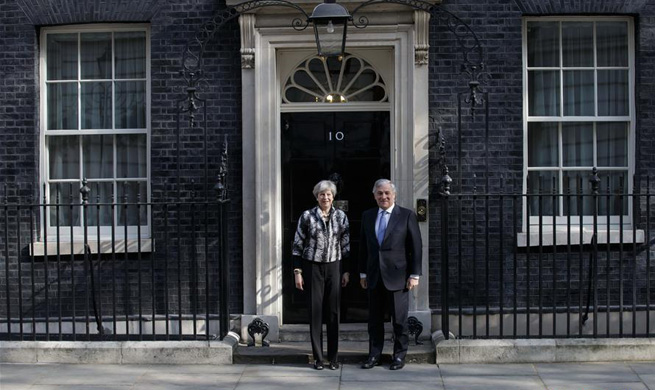by Will Koulouris
SYDNEY, April 21 (Xinhua) -- Global oil and energy giant Chevron lost their appeal Friday in a landmark case brought against it in the Australian Federal Court by the Australian Tax Office (ATO).
The case involved a transfer pricing issue as the ATO accused the company of owing over 300 million Australian dollars (225.81 million U.S. dollars) in unpaid taxes stemming from a tax avoidance method that allowed the company to borrow money at higher rates and shifting their profits offshore to be taxed at a lower rate.
Federal Treasurer Scott Morrison was delighted with the result, and in a tweet to his followers on Friday said, "Chevron will pay more than $300m to the ATO proving the govt's program of tax avoidance funding and new measures is working."
According to the Federal Court of Australia judgment in Sydney on Friday, this method of tax avoidance was undertaken by Chevron through borrowing money in the United States at an interest rate of 1.2 percent and then issuing a loan to their Australian subsidiary for the equivalent of 9 percent interest.
In his determination, Justice Pagone stated that by doing so, the company was able to "make significant profits from borrowing at 1.2 percent and on-lending at 9 percent which would not be taxed either in the United States or in Australia."
Miranda Stewart, director of the Tax and Policy Institute at the Crawford School of Public Policy at the Australian National University, told Xinhua on Friday that the decision was a clear signal in support of the initial findings of the court in this case, saying Friday's decision was "music to the ears of the commissioner."
"They state clearly that it is necessary when interpreting these technical rules to look at the purpose of the provisions as a whole, which includes preventing base erosion, preventing tax minimization," Stewart said.
"The court took a broad purposive approach, and basically said that when you are looking at working out if there's arm's length dealing, which is what transfer pricing rules require, you look in the context of the corporate group; you don't have to pretend there's some completely isolated company and what price would they pay for borrowing, and what interest rate they would pay."
Stewart said Chevron had tried to state that since the rules governing this kind of financial operation had changed, applying the rules retrospectively would render them unconstitutional as they were arbitrary, to which Stewart explained, the court had a direct response.
"The court completely rejected that argument, they didn't provide much discussion, they just say it's clear that the parliament was within power and it's not unconstitutional."
After Friday's decision, Chevron issued a statement in which they claimed to be "disappointed" by the findings of the court and plan to "review the decision to determine next steps, which may include an appeal to the High Court of Australia."
"As recognized by the trial court in the dispute, the financing is a legitimate business arrangement and the parties differ only in their assessments of the appropriate interest rate to apply," the statement said.
This case has been the first time that a decision has been made in Australia relating to the manner with which transfer pricing rules apply to interest paid on a cross-border related party loan, a practice that is engaged by many multinational companies and could lead to wide ranging consequences for business.
Assistant Minister to the Treasurer Michael Sukkar said this decision represents the government's push to crackdown on multinational tax avoidance methods.
"This is just another step in the government's repeated attempts and commitment to ensure corporates who are operating in Australia are paying appropriate levels of taxation," Sukkar said.
"This sets a precedent for other taxpayers."

















